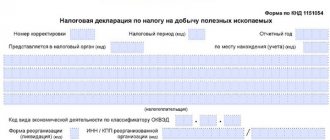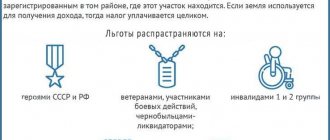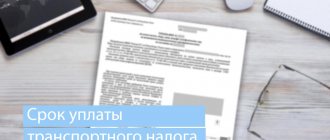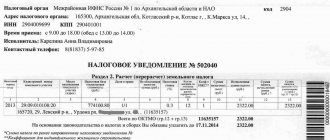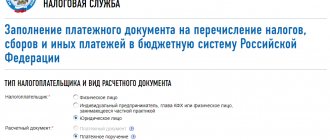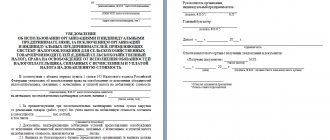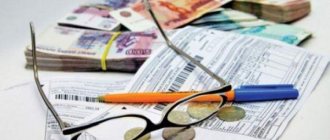Who can be exempt from paying VAT under Article 145 of the Tax Code of the Russian Federation
Both organizations and individual entrepreneurs (IP) can receive VAT exemption. The main thing is that the following condition is met: the amount of revenue from the sale of goods, works, services (excluding VAT) for the three previous consecutive calendar months should not exceed 2 million rubles. (clause 1 of article 145 of the Tax Code of the Russian Federation).
Note that these three months are not necessarily a quarter. This can be any three consecutive months - for example, February-March-April, August-September-November, etc.
Not entitled to receive exemption from VAT (clause 2 of Article 145 of the Tax Code of the Russian Federation):
- persons selling excisable goods;
- organizations that are exempt from VAT as participants in the Skolkovo project.
Newly created organizations and newly registered individual entrepreneurs also cannot apply for exemption during the first three months of work. They don't yet have the required three months' revenue.
From 01.01.2019, firms and individual entrepreneurs on the Unified Agricultural Tax pay VAT to the budget. They also receive the right to tax exemption under Article 145 of the Tax Code of the Russian Federation. However, both the conditions of exemption and the form of notification of exemption are different for such payers. The officials mentioned them in passing, and we will not dwell on them either.
And if there is no income, can the exemption be applied?
If there was no revenue for the previous 3 months before the exemption was applied, then it was zero. Zero, as you understand, is less than 2 million rubles. Therefore, it seems that nothing prevents the application of exemption. The same point of view was expressed (albeit for a long time) by Moscow tax officials (Letter of the Federal Tax Service of Russia for Moscow dated September 4, 2006 N 19-11/077487). However, soon after this, the Ministry of Finance issued a Letter with the opposite position (Letter of the Ministry of Finance of Russia dated March 28, 2007 N 03-07-14/11). Even now, financial department specialists are against the release.
From authoritative sources Vikhlyaeva E.N., Ministry of Finance of Russia “If during 3 consecutive calendar months preceding the month from which the taxpayer would like to apply the VAT exemption, he had no revenue from the sale of goods, works, services, then there are grounds for using the exemption not available".
How to calculate revenue indicator
When calculating the limit, you need to include only revenue from VAT-taxable transactions.
Example 1. Determination of revenue for VAT exemption A company on the general system plans to exercise the right to VAT exemption from August 2021.
For the three previous consecutive calendar months, revenue from the sale of non-excisable goods amounted to:
- May – 600,000 rub. (including VAT – 100,000 rubles);
- June – 720,000 rub. (including VAT – 120,000 rubles);
- July – 960,000 rub. (including VAT – 160,000 rubles).
In addition, in May the company sold a plot of land it owned for RUB 340,000.
The total amount of revenue for the three indicated months excluding VAT amounted to 2,240,000 rubles. (600,000 – 100,000 + 720,000 – 120,000 + 960,000 – 160,000 + 340,000).
Operations for the sale of a land plot are not recognized as subject to VAT taxation (subclause 6, clause 2, article 146 of the Tax Code of the Russian Federation). Therefore, this amount does not need to be taken into account when determining revenue for applying VAT exemption.
Since 1,900,000 (2,240,000 – 340,000) is less than 2,000,000, the company has the right to send a notification to the tax office about the use of the right to VAT exemption from August.
When determining the amount of revenue, income received from the sale of excisable goods is not taken into account, since exemptions cannot be applied to such transactions. The list of such goods is in Article 181 of the Tax Code of the Russian Federation.
If a company sold both excisable and non-excise goods, then it can receive an exemption from VAT. However, only transactions involving the sale of non-excisable goods do not need to be taxed. In this case, the company must keep separate records of sales of such goods.
When and in what form do I need to report value added tax?
Starting from 2015, VAT returns are submitted only in electronic form via telecommunication channels (TCC) through electronic document management (EDF) operators. Only individual entrepreneurs exempt from VAT and tax agents who are not payers of this payment can submit reports on paper.
Value added tax reporting in 2021 must be submitted within the following deadlines:
- for the first quarter – until April 25;
- for the second quarter – until July 25;
- for the third quarter – until 25.10;
- for the fourth quarter – until January 27, 2020.
Note
: If the deadline falls on a weekend or holiday, it is moved to the next working day. As, for example, in the case of submitting reports for the 4th quarter of 2021. Since January 25, 2021 falls on a Saturday, the deadline is moved to Monday – January 27.
Documents for notification
From 04/01/2019, two new forms of notifications on the use of the right to VAT exemption are in effect. A separate form was introduced for Unified Agricultural Tax payers and a separate one for all others - those whose revenue did not exceed 2 million rubles for three months.
The new forms were approved by Order of the Ministry of Finance of the Russian Federation dated December 26, 2018 No. 286n. Order of the Ministry of Taxation dated July 4, 2002 No. BG-3-03/342, containing the old form of notification, has become invalid.
Along with the notification, you must submit (paragraph 2, paragraph 3, paragraph 6, article 145 of the Tax Code of the Russian Federation):
- extract from the balance sheet (for legal entities);
- an extract from the books of income and expenses and business transactions (for individual entrepreneurs);
- extract from the sales book.
Copies of logs of invoices received and issued are no longer needed.
Extract statements in any form. But please note that they must clearly show revenue for the previous three months.
An extract from the balance sheet is provided in the form of a certificate of revenue, which indicates the total amount of revenue excluding VAT for the last three months and broken down by each month, or in the form of a copy of the balance sheet and (or) income statement.
An extract from the sales book is usually drawn up in the form of a certificate, which indicates the total line from the book for the last three months.
Results
So, let's summarize. The Tax Code of the Russian Federation provides for 2 types of VAT exemption:
- Exemption from VAT payer obligations (Article 145 of the Tax Code of the Russian Federation).
- Exemption from VAT for certain transactions (Article 149 of the Tax Code of the Russian Federation).
The first applies to all activities of a business entity and requires notification to the tax authority. The second applies only to specific types of transactions and is applied without any notification to the tax authorities. However, the use of each of them requires compliance with certain conditions.
Sources:
- Tax Code of the Russian Federation
- Letter of the Federal Tax Service of Russia dated May 12, 2014 N GD-4-3/ [email protected]
- Order of the Ministry of Finance of Russia dated December 26, 2018 N 286n
- Decree of the Government of the Russian Federation of December 26, 2011 N 1137
You can find more complete information on the topic in ConsultantPlus. Free trial access to the system for 2 days.
Responsibilities of a VAT exempt person
Taxpayer exempt from VAT:
- is not exempt from issuing an invoice to the buyer. In invoices, it does not highlight VAT, but makes the inscription: “Without VAT” (Clause 5 of Article 168 of the Tax Code of the Russian Federation);
- must keep a sales book (subclause 1, clause 3, article 169 of the Tax Code of the Russian Federation);
- does not have the right to deduct VAT (subclause 1, clause 2, article 171, subclause 3, clause 1, article 170 of the Tax Code of the Russian Federation);
- includes “input” VAT in the cost of goods, works, services (subclause 3, clause 1, article 170 of the Tax Code of the Russian Federation).
At the same time, a VAT exempt from duties is not obliged to:
- calculate and pay VAT, except for cases when he issues an invoice with an allocated tax (clause 5 of Article 173 of the Tax Code of the Russian Federation);
- submit a VAT return (letter of the Federal Tax Service of Russia dated April 29, 2013 No. ED-4-3/ [email protected] );
- keep a purchase book (letter of the Federal Tax Service of Russia dated April 29, 2013 No. ED-4-3 / [email protected] ).
We must also not forget that when receiving an exemption from VAT, you are obliged to restore the generally accepted VAT deduction from the cost of goods (work, services), fixed assets, and intangible assets that will be used during the exemption period.
The following transactions are not subject to VAT
Above we discussed those who are exempt from paying VAT as an enterprise or individual entrepreneur in general. However, the legislation also provides for the possibility of not paying VAT on the sale of certain types of products (goods, services). The preferential list is contained in Art. 149 of the Tax Code of the Russian Federation. According to this article, the following transactions are exempt from VAT:
- Socially significant goods and services (medicine, care for children and disabled people, urban and suburban passenger transport).
- Services in the field of culture and art.
- Financial services (insurance and banking).
- Products and services sold by public organizations of disabled people and enterprises established by them.
- Providing services in the field of R&D.
We have listed only the main groups, since the full list contains several dozen items.
Nuances of recovery
The tax must be restored in the last quarter before the start of using the exemption, if the tax exemption begins in the first month of the quarter. If you began to apply the exemption from the second or third month of the quarter, then you need to restore VAT in the same quarter (clause 8 of Article 145 of the Tax Code of the Russian Federation).
One of the conditions for accepting the “input” tax for deduction is the use of the object in activities subject to VAT (Articles 171, 172 of the Tax Code of the Russian Federation). If the organization receives a VAT exemption, this condition is not met. This means that the deductions must be restored. The tax is restored from the cost of goods and materials remaining on the organization’s balance sheet on the date the VAT exemption begins to apply. In addition, VAT must be restored from the residual value of existing fixed assets. In this case, the residual value must be determined according to accounting data. This is confirmed by paragraph 25 of the resolution of the Plenum of the Supreme Arbitration Court of the Russian Federation dated May 30, 2014 No. 33.
Before you can begin to apply the VAT exemption, you must make entries in the sales ledger for the amount of the tax recovered.
Entries are made on the basis of invoices for which tax was previously deducted. Example 2. How to restore VAT The company will apply a VAT exemption from 01/01/2019.
As of September 30, 2019, she has a fixed asset on her balance sheet with a residual value of RUB 100,000. and goods worth 30,000 rubles. (without VAT). Previously, “input” VAT was deducted from the value of all property at a rate of 20%. Let's calculate how much tax a company must recover before being exempt from VAT. The total amount of VAT to be restored is 26,000 rubles. (RUB 100,000 × 20% + RUB 30,000 × 20%). The accountant must make the appropriate entries in the sales book for the third quarter of 2021 on September 30, 2019.
Advances received
Situation: when calculating the revenue limit for VAT exemption, is it necessary to take into account the amounts received for the upcoming sale of goods (performance of work, provision of services)?
No no need.
When determining the limit, it is necessary to take into account the proceeds from the sale of goods (performance of work, provision of services) (Clause 1 of Article 145 of the Tax Code of the Russian Federation). In this case, sales means the transfer of ownership of goods, transfer of the results of work performed and the provision of services (clause 1 of Article 39 of the Tax Code of the Russian Federation). Upon receipt of an advance payment, the organization does not sell goods (perform work, provide services). This means that the funds received on account of the upcoming sale (advance payment, deposit, etc.) are not proceeds from the sale.
The validity of this approach is confirmed by arbitration practice (see, for example, decisions of the FAS of the North-Western District dated July 20, 2012 No. A44-4183/2011, dated April 20, 2012 No. A26-4179/2011, Ural District dated September 7, 2005 No. Ф09-3778/05-С2, West Siberian District dated October 17, 2005 No. Ф04-5886/2005(14644-А70-18) and dated June 21, 2005 No. Ф04-3718/2005(12172- A46-27)).
Release period
Once you start using the VAT exemption under Article 145 of the Tax Code of the Russian Federation, you will not be able to refuse it within 12 calendar months (clause 4 of Article 145 of the Tax Code of the Russian Federation).
When this period expires, you must submit to the inspectorate:
- documents confirming that during the release period your revenue for every three consecutive calendar months did not exceed 2 million rubles;
- notification of the extension of the VAT exemption for the next 12 calendar months or of its refusal.
At the same time, in some circumstances the right to exemption from VAT can be lost (clause 5 of Article 145 of the Tax Code of the Russian Federation):
- if revenue for any three months exceeds 2 million rubles;
- if you sell excisable goods.
The right not to pay VAT is lost from the 1st day of the month in which the excess revenue occurred or the sale of excisable goods began (clause 5 of Article 145 of the Tax Code of the Russian Federation).
What is the beauty of liberation?
For 12 calendar months (they begin to flow from the month in which you notified your Federal Tax Service of your desire to receive an exemption), you will not have to : - charge and pay VAT on transactions in the domestic Russian market. And “input” VAT on purchased goods (works, services) is included in their cost; — issue advance invoices and those invoices that you issue for yourself in one copy (for example, when performing construction and installation work); — submit tax returns (Decision of the Supreme Arbitration Court of the Russian Federation dated February 13, 2003 N 10462/02; Letter of the Federal Tax Service of Russia for Moscow dated November 17, 2009 N 16-15/120379).
Deadlines for submitting documents for release
It should still be taken into account that there is a general rule: you need to inform your Federal Tax Service about the application of the VAT exemption no later than the 20th day of the month from which you began to use the exemption (clause 3 of Article 145 of the Tax Code of the Russian Federation). If this deadline is violated, the inspectorate will try to refuse to apply your exemption.
But the law will not determine the consequences of violating this deadline. Therefore, delay cannot serve as a reason for refusing VAT exemption and additional tax assessment. Nothing can be done: this is the position set out in paragraph 2 of the Resolution of the Plenum of the Supreme Arbitration Court of the Russian Federation dated May 30, 2014 No. 33.
Moreover, since the exemption from VAT is not a permit, but a notification in nature, no decision from the inspectorate is required in this regard (see Resolution of the FAS of the Volga District dated September 22, 2008 No. A65-1347/08).
So, in order to legally avoid paying VAT, you need to meet certain conditions and take the necessary actions. However, before committing to an exemption, determine whether it will benefit you.
Working without VAT seems at first glance more profitable for the company than with VAT. After all, there is no need to pay VAT, maintain tax registers and prepare reports. VAT also requires increased responsibility for documents and increases the burden on the accountant, who needs to maintain additional tax and accounting registers for VAT accounting.
However, working with VAT increases the attractiveness of your company to large buyers, most of whom operate on a common system. And applying tax deductions can make the cost of your product lower than that of your smaller competitors.
Revenue from activities on UTII
Situation: when calculating the revenue limit for VAT exemption, is it necessary to take into account revenue received from activities subject to UTII? The organization combines the general taxation system and UTII.
No no need.
For activities subject to UTII, the organization is not a VAT payer (clause 4 of Article 346.26 of the Tax Code of the Russian Federation). In addition, revenue received from activities subject to UTII is taken into account separately from revenue from other types of activities (clause 7 of Article 346.26 of the Tax Code of the Russian Federation).
Therefore, do not include revenue from activities subject to UTII when calculating the limit for VAT exemption.
The same position is shared by regulatory agencies (letters from the Ministry of Finance of Russia dated March 26, 2007 No. 03-07-11/72 and the Ministry of Taxes of Russia dated May 13, 2004 No. 03-1-08/1191/15).
Bank guarantee of VAT refund
The bank guarantee must be irrevocable and non-transferable. The bank guarantee must expire no earlier than 10 months from the date of filing the tax return in which the amount of VAT to be refunded is declared. In addition, the guarantee must allow for the undisputed debiting of funds from the company's account if it does not comply with the payment requirement. Only a bank included in the relevant list of credit institutions maintained by the Russian Ministry of Finance can issue a guarantee.
To be included in this list, a bank must meet the following requirements: have a license from the Bank of Russia; operate for at least 5 years; have own funds of at least 1 billion rubles; comply with the standards mandatory for credit institutions, and not have requirements from the Bank of Russia to take measures for financial recovery.
The amount for which the bank guarantee is issued must ensure the fulfillment of obligations to return to the budget in full the amount of tax claimed for reimbursement.
Tax expert B.L.Svain
Revenue from commission agreements
Situation: when calculating the revenue limit for VAT exemption, is it necessary to take into account the sales value of goods sold under commission agreements? The organization sells both its own goods and those accepted for commission.
No no need.
The revenue of organizations selling goods (work, services) under commission agreements is equal to their commission. Amounts received from buyers of goods (works, services) that are transferred to the principal (less commission) are not the commission agent's revenue. This follows from paragraph 1 of Article 156 of the Tax Code of the Russian Federation and Article 991 of the Civil Code of the Russian Federation.
Therefore, when calculating the limit for VAT exemption, include only:
- revenue received from the sale of own goods (excluding VAT);
- commission (excluding VAT).
Features of the benefit
Two important points when switching to benefits:
- Buyers and clients cannot deduct VAT from transactions with your company. It doesn't matter if they work in a simplified manner. But if they have OSN, then there may be problems with the profitability of working with you.
- You cannot deduct VAT from incoming invoices during the exemption period and even after it ends.
Not charging or accepting VAT is still more profitable than charging and deducting. Just don't make any mistakes when planning.


